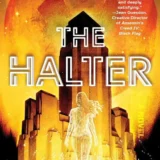Some of you might have heard about the Chinese science fiction translation project of Clarkesworld Magazine. It is intended to publish a short story originally published in Chinese, and then translated into English in every issue.
In the same issue where Neil Clarke announced the exciting news (Issue 96, September 2014), Xia Jia’s Spring Festival: Happiness, Anger, Love, Sorrow, Joy was published, translated by Ken Liu.
In this story, the daily life of common Chinese people in the near future, or to be more specific, in 2044 as is indicated in the Chinese title of the story, is described in a subjective and plain tone with a set of scenes. The story is composed of 5 smaller ones, indicating 5 emotions correspondently, happiness, anger, love, sorrow and joy. Not all the stories are directly or closely related with the Spring Festival, yet they all represent Chinese culture well, just as the Spring Festival does.
Spring Festival is the most important festival in China. It marks the start of the Chinese New Year. People who live in other cities or countries rush back to their home towns. All families gather together to celebrate the festival.
2044 is not a far away future. Although it is a symbolic indication, it points out the era when the stories happen. There is not much difference between life in 2044 and life today. Chinese people still follow the traditional routines, Zhuazhou, watching the Spring Festival Gala, mothers urging daughters to find a husband by matchmaking, old classmates gathering together to share memories and news, and elderly people being wished longevity on their birthdays. However, something profound yet subtle has changed. The influence of modern technology is shown here, not critically, but gently. There are millions of things that can be dug into deeply, but the author does not. Readers may interpret this as criticism against commercial society, entertainment industry, etc., but the original intention of the author is to remind the readers that “deep changes are happening around us almost undetectably. These changes are the most real, and also the most science fictional.” (Author’s Note, Spring Festival: Happiness, Anger, Love, Sorrow, Joy, Xia Jia, translated by Ken Liu, Clarkesworld Magazine, Issue 96, September 2014). These changes neither make the ordinary life much better, nor much worse. They just happen silently, imperceptibly.
To set the keynote of the story, Xia Jia uses a simple plot and plain language. She does not play tricks or show off her gorgeous langue skills, but just tells the story honestly. This corresponds with the everyday life of common people in China. We live ordinary and simple life. Even anger just appears for a moment and then disappears.
Xia Jia mentioned in the Chinese version of author’s note that the direct inspiration for the story is the BBC TV drama Black Mirror. Black Mirror captures real yet strange moments under the smooth surface of daily life, discusses the important themes of western culture (justice, ethics, morals, values, happiness, faith) under the background of technological transformation, profoundly and acutely. But when Xia Jia writes about the Chinese stories, it becomes tender. She herself actually discussed more about Chinese science fiction in an article, What Makes Chinese Science Fiction Chinese? on Tor.com.
The translation keeps the simple and plain tone of the original Chinese text. When talking with Xia Jia, she told me that something subtle behind the words was hard to capture, but Ken did it well. Ken’s translation follows the rule of dynamic equivalence. His understanding of the small stories is the same with Xia Jia: they reflect different emotions. To make it more understandable to western readers, Ken translated the title to Spring Festival: Happiness, Anger, Love, Sorrow, Joy, instead of translating literally as Old Memories of Spring Festival in 2044.
Interestingly, there are 6 chapters in the original Chinese version, but only 5 in the English translation. A chapter called Valentine has beenexcised. After consulting with Xia Jia, I figured out that Ken recommended to shorten the whole story in order to make it suit western readers and the magazine better. Ken’s suggestion was to keep 4 chapters, Zhuazhou, Matchmaking, Reunion and The Birthday, while Xia Jia suggested keeping Zhuazhou, New Year’s Eve, Reunion and The Birthday. Finally, Ken translated 5 as you see.
I cannot say that Spring Festival: Happiness, Anger, Love, Sorrow, Joy is the most representative of Xia Jia work, but yet it is a brilliant one. Xia Jia’s language is very beautiful and she does well in creating fantastic scenes and dreamy atmospheres. You may notice this from her other short story published in Clarkesworld Magazine, A Hundred Ghosts Parade Tonight (also translated by Ken Liu) and other works in Chinese. However, Spring Festival: Happiness, Anger, Love, Sorrow, Joy is written in a humble way. I regard it as literature consciousness she obtained from her study in Chinese science fiction.
After getting a bachelor degree in Atmospheric Sciences at Peking University and a master degree in Film Studies at the Communication University of China with the thesis, Film Studies Program at the Communication University of China, Xia Jia did her Ph.D. research in Comparative Literature and World Literature at Peking University. She obtained her degree recently in 2014 with the dissertation Chinese Science Fiction and Its Cultural Politics Since 1990 and now teaches at Xi’an Jiaotong University.
She is one of the most popular Chinese science fiction writers not only because of her excellent writing, but also because of her beauty and friendly attitude towards readers. She has a nickname among the Chinese fans, Qie Zi (Eggplant) because the Chinese character Jia(笳) and Qie(茄) resemble each other.
Xia Jia is not only an admirable writer, a fruitful scholar, but also a good translator. She has translated several of Ken Liu’s stories, just as Ken Liu has translated several of hers.
Ken Liu is the Nebula, Hugo, and World Fantasy awards winner. He is a writer as well as translator. Born in China and growing up in America, Ken is a master of both Chinese and English. He has translated bunches of Chinese science fiction into English, including the first book of The Three Body Trilogy by Liu Cixin. Ken plays as the bridge between Chinese science fiction and the world.










As I have read both Chinese and English versions of the story mentioned here, I have to say that Ken Liu has done a brilliant job in translation. He has the background of both Chinese and American cultures, which enables him to bridge the gaps in between for the benefits of western readers. Without his precise interpretation of the concepts and ideas between the lines of the original Chinese text, westerners would have found it difficult to grasp the intention of the author.
Ken Liu is a remarkable writer and translator. His stories are remarkably simple and easy to read and he includes the right amount of science fiction and fantasy in each one. He is a master storyteller. There is never too much dialogue, characterization, or conflict in his stories. I wish I knew how to write like him…